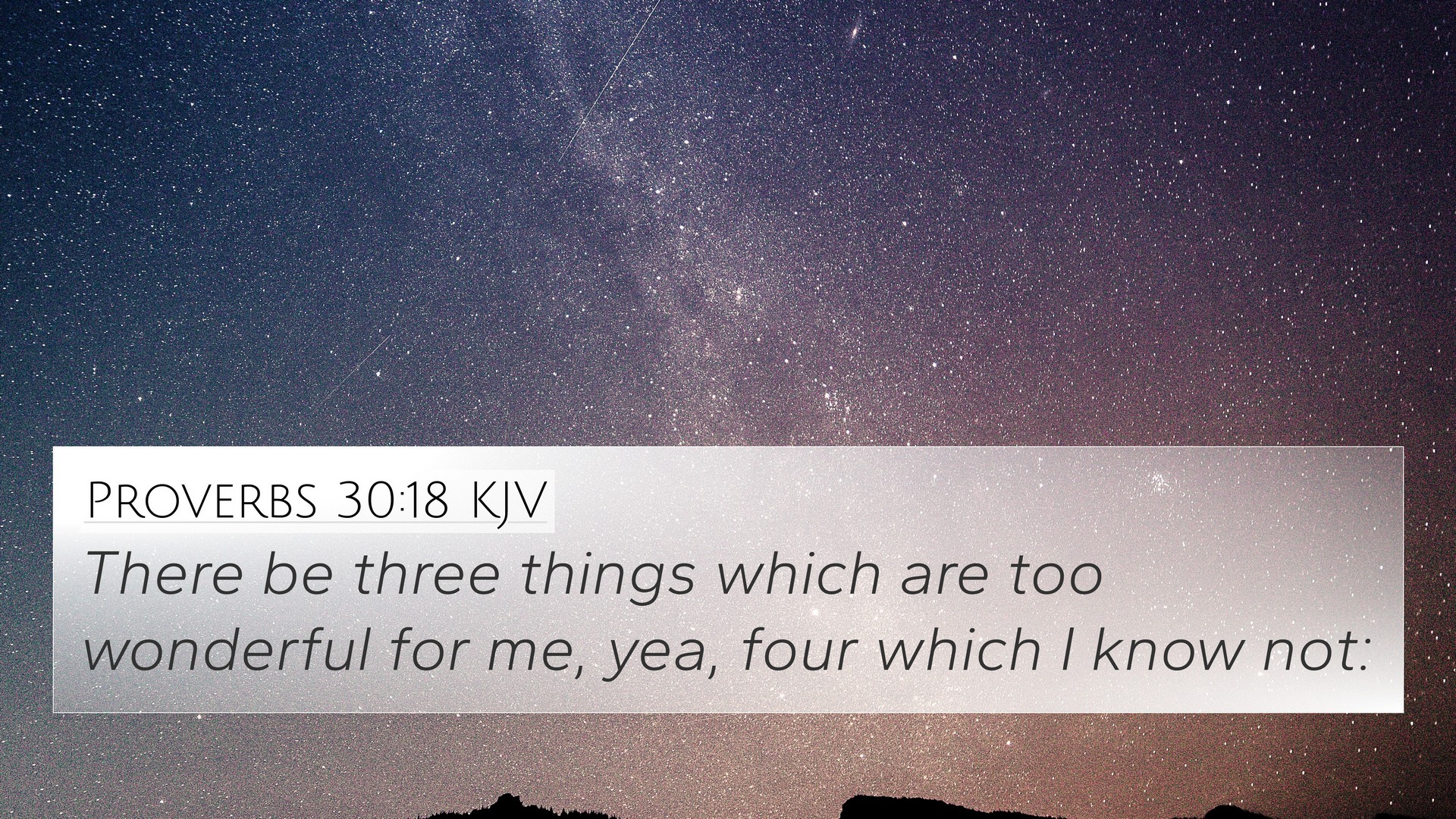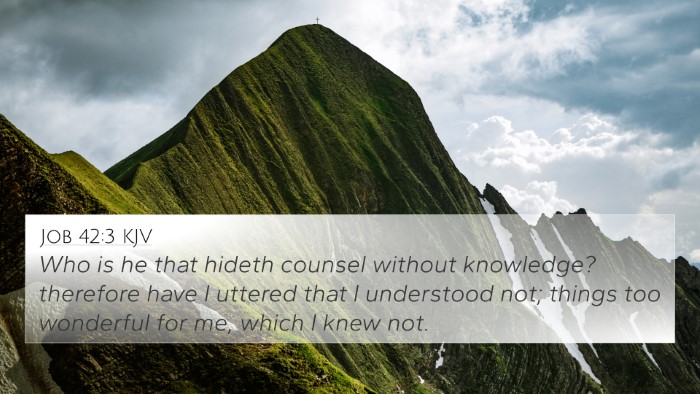Understanding Proverbs 30:18
Proverbs 30:18 states, "There be three things which are too wonderful for me, yea, four which I know not." This verse expresses the author's contemplation of the mysteries of life, pointing to profound truths that transcend human understanding. Below, we will delve into the verse's meaning by synthesizing insights from public domain commentaries such as Matthew Henry, Albert Barnes, and Adam Clarke.
Key Insights from Commentaries
This verse reveals a deep sense of humility and awe in the presence of elements beyond the grasp of human intellect. Each of the commentaries provides a unique analysis:
-
Matthew Henry:
Henry points out that the things referred to in the verse signify mysteries that are embedded in the natural order and the limitations of human perception. He emphasizes the importance of recognizing our own limitations and the majesty of God's creation, which often lies beyond our understanding.
-
Albert Barnes:
Barnes interprets the verse as an invitation to explore the beauty and complexity of divine creation. He highlights the need for humility when facing mysteries and urges readers to seek knowledge through faith, recognizing that certain aspects of life are intentionally left unexplained.
-
Adam Clarke:
Clarke identifies the “three things” as symbols of divine truth and human inquiry. He discusses how these mysteries stir curiosity, leading to a deeper understanding of God's purpose and the ultimate truth found in scripture.
Context and Themes
Proverbs 30:18 is situated in a larger discourse concerning the observations of the wise. This context illustrates the recurring theme of wisdom that is prevalent throughout the book of Proverbs. Wisdom literature often correlates with the acknowledgment of divine mysteries.
Thematic Connections
-
The Limits of Human Understanding:
The verse emphasizes human limitations in comprehending certain divine mysteries. This theme invites readers to humility and encourages reliance on divine revelation.
-
Awe and Wonder:
Recognizing the wonders of creation leads to a sense of awe. This feeling is a crucial aspect of faith, as it invites us to explore deeper truths about God's nature.
-
Faith Seeking Understanding:
As believers grapple with the mysteries mentioned, they are led to seek a deeper relationship with God, a journey enriched by faith and scripture.
Cross-References for Proverbs 30:18
Understanding the connections between Bible verses can enhance our comprehension of Proverbs 30:18. Below are several related scriptures that echo similar themes:
- Job 11:7-9: "Can you fathom the mysteries of God? Can you probe the limits of the Almighty?" - This verse highlights the unsearchable ways of God.
- Isaiah 55:8-9: "For my thoughts are not your thoughts, neither are your ways my ways," declares the LORD.
- Psalm 139:6: "Such knowledge is too wonderful for me, too lofty for me to attain." - This verse expresses a similar awe in recognizing the limitations of human understanding.
- Romans 11:33: "Oh, the depth of the riches of the wisdom and knowledge of God! How unsearchable his judgments, and his paths beyond tracing out!"
- Ecclesiastes 3:11: "He has made everything beautiful in its time. He has also set eternity in the human heart; yet no one can fathom what God has done from beginning to end."
- Colossians 2:3: "In Christ are hidden all the treasures of wisdom and knowledge." - This emphasizes where true understanding can be found.
- 1 Corinthians 13:12: "For now we see only a reflection as in a mirror; then we shall see face to face." - The promise of understanding and comprehension that will come with divine revelation.
Conclusion
Proverbs 30:18 encapsulates the essence of humility before divine mysteries. Integrating insights from different commentaries reveals the richness of this passage and its relevance to the believer's journey. By cross-referencing this verse with related scriptures, we deepen our theological understanding and embrace the awe inherent in our relationship with God. As you explore these biblical themes, take the time to reflect on how these mysteries influence your faith and understanding.
The Importance of Cross-Referencing
Utilizing tools for biblical cross-referencing enhances our study, allowing for a comprehensive understanding of scripture. With resources like Bible concordances and cross-reference guides, believers can cultivate their spiritual growth through systematic study methods. To fully appreciate the connections between biblical texts, one can utilize various methods of cross-referencing, leading to enriched theological insight and application.




